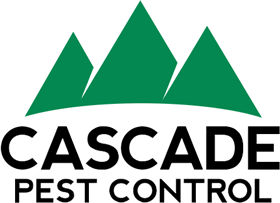Author: Kurt Treftz, Cascade Pest Control
As the weather warms up and everything is in bloom, bees and wasps become more active as well. While these species are vital to the ecosystem and the pollination of different varieties of flora and fauna, they can become harmful and dangerous if they nest too close to your house. Because of this, it is helpful to be able to recognize different types of bees and wasps common to the Seattle area and have an understanding of their habits.
Bees
In Western Washington particularly, honey and bumble bees are rather common in the late spring and summer seasons. Both thrive on the nectar and pollen found in the blooming flowers and plants around these times of year.
These bees live mostly to protect their nests and forage for food for their hives. While out foraging, they are usually more docile and less defensive. Near and around their hives, however, they can become aggressive. New colonies of bumble bees are established every spring, while honey bees tend to stay in perennial nests. Both species tend to seek out small cavities in buildings and walls, large tree crevices, abandoned burrows, and other similar spaces in which to create their nests.
Honey bees can only sting once, as their barbed stinger comes off their body as it lodges in their perceived attacker, but bumble bees’ stingers are not barbed and remain attached, allowing them to sting multiple times without dying. In the case you or a loved one does get stung, it is important that you remove the stinger, if present, and wash the site thoroughly before applying ice or taking an antihistamine.
Other varieties of bee, like carpenter, can be detrimental to your house structure due to their burrowing and tunneling tendencies. It is in nest / colony removal that professional assistance could be of use. Don’t hesitate to call Cascade to have a professional come inspect and identify any worrisome bee nests around the turn of the season.
Wasps
Unlike their round and hairy bee relatives, wasp varieties – including yellow jackets, hornets, and paper wasps – have smooth, shiny bodies that are more slender and pinched at the waist. The aforementioned varieties of wasp are most common in Washington, especially plaguing western areas including Greater Seattle and Tacoma.
Wasps tend to be more aggressive and intimidating looking than bees. Their feeding habits are largely different, too. Most wasps go after small insects and will scavenge human food and waste, making them a common uninvited picnic guest. Because humans can naturally attract them in this way, the risk of one getting stung is inherently higher with wasps as opposed to bees. In this respect, it is crucial to be aware of anyone with allergies, as an afternoon in the park or summer-time hike can quickly take a turn for the worse, especially since wasps are known to sting without being provoked.
Wasps rarely re-use nests from season to season, making them further elusive and sometimes harder to predict and prevent. Yellow jackets nest in the ground in old rodent holes or hollows, and can also be found in outdoor furniture. Other wasps can build hanging nests from tree limbs or overhangs, as well as nest within small cavities in your structure’s gutters or exterior walls. Wasp nests can grow undetected for long periods of time unless you are keeping up with regular pest control maintenance.
Professional Wasp & Bee Control
Your bee or wasp infestation may be more than you can handle as a ‘DIY’ project. Cascade offers bimonthly inspection visits to take that load off your shoulders. Our technicians are professionally trained to locate, remove, and prevent future wasp or bee threats to your home or business.
As a local, family-owned and operated business in the Seattle-Tacoma region since 1979, we are expertly aware of the harm and inconvenience bees and wasps can pose to your residential or commercial property. We are dedicated to eco-friendly, convenient, and preventative pest and rodent control methods to ensure the safety of your space.
Call 888-989-8979 or request a quote to get started today!
